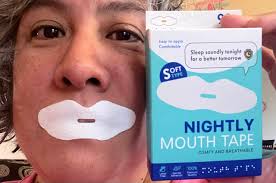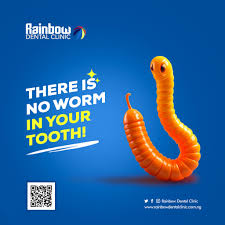Mouth Taping is a controversial sleep technique where a suffering person applies a thin strip of tape over his/her lips before going to bed. The objective is to promote nasal breathing while minimizing mouth breathing. Mouth breathing has several negative effects on an individual’s oral and general health.
Effects on general Health:
It causes snoring and contributes to sleep apnea. This leads to poor sleep quality, fatigue, and other related issues.
It increases the risk of respiratory infections as nasal breathing acts as a natural filter for allergens, dust and contaminants.
Effects on oral Health:
It reduces saliva production which leads to dryness. It promotes bacterial growth and increase the risk of tooth decay and gum disease.
Prolonged mouth breathing affects jaw and teeth alignment. It leads to issues like open bite or long-face syndrome. In the syndrome a child has long, narrow face, receding chin and downward sloping jaw.
Dry mouth increases tooth exposure to temperature changes and acids, leading to sensitivity and erosion.
Dry mouth gives rise to a smaller or constricted airway, which may worsen breathing difficulties over time.
Chronic mouth breathing leads to forward head posture, contributing to neck and back pain over time.
Some people think taping their mouth at night helps them breathe through their nose. This might reduce snoring, ease mild sleep apnea, and improve sleep quality. However, only a few studies have looked into it, and there is no clear proof that it works.
Demerits of mouth taping:
Mouth taping is not a medically proven treatment for any sleep disorder.
Several risks can arise from using mouth taping, especially when done without proper guidance or medical advice.
If the nose is congested due to allergies, colds, or deviated nasal wall, mouth taping can block the only available airway, making it hard to breathe.
Mouth Taping can cause skin irritation, redness, or even rashes around the lips, especially if the adhesive is strong or if the skin is sensitive.
If someone isn’t used to having his mouth taped, he might feel scared or anxious. This is especially true if he wakes up in the middle of the night and can’t breathe through his nose.
Discomfort from the tape or difficulty adapting to mouth taping can disturb sleep instead of improving it.
In pateitns with nasal obstrution, it might intensify sleep apnea in some cases by increasing airway resistance.
It is therefore, necessary to consult with a dentist before trying mouth taping, especially if you have any underlying health conditions or concerns about your sleep.





